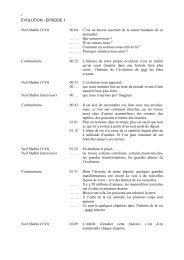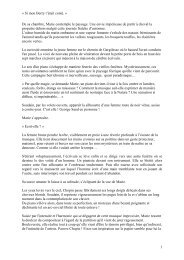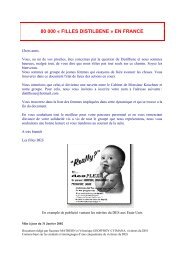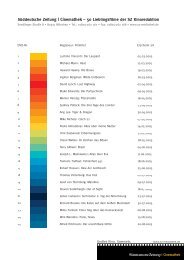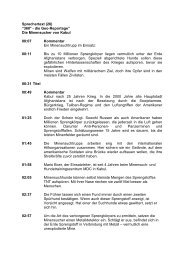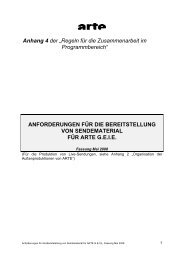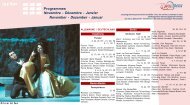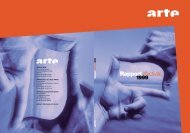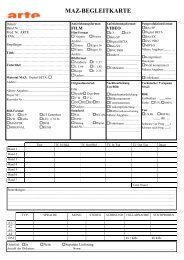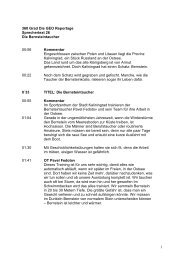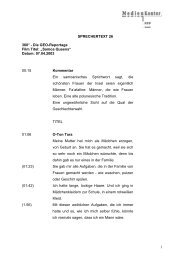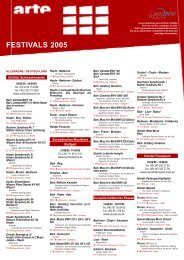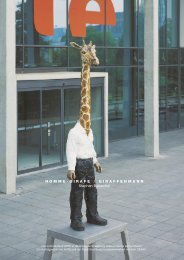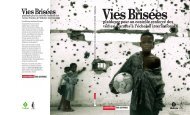POPs IN AFRICA HAZARDOUS WASTE TRADE 1980 - 2000 ... - Arte
POPs IN AFRICA HAZARDOUS WASTE TRADE 1980 - 2000 ... - Arte
POPs IN AFRICA HAZARDOUS WASTE TRADE 1980 - 2000 ... - Arte
Create successful ePaper yourself
Turn your PDF publications into a flip-book with our unique Google optimized e-Paper software.
U.S.W.C.Inc.”. 187<br />
(Note: maybe this scheme is another variation of the following:<br />
“Roger Cottenie”.)<br />
Scheme: Roger Cottenie<br />
Date: 1989<br />
Type of Waste: Solid<br />
Source: U.S. and Western Europe<br />
Exporter: Roger Cottenie (Mechelen, Belgium)<br />
Pretext/Fate: Waste to Energy<br />
Status: Rejected<br />
A consortium consisting of three European firms plans to burn<br />
solid wastes from the U.S. and from Western Europe in an<br />
energy-generating waste incinerator in Sierra Leone. The project<br />
was planned and coordinated by Roger Cottenie of Mechelen,<br />
Belgium, who introduced the scheme during a press-conference<br />
in Freetown.<br />
France is to deliver the incinerator-related technology while<br />
Austria supplies the technology to build the disposal site and<br />
produce methane gas. The participants in the scheme allegedly<br />
plan to fill up the disposal site with waste for two to three years,<br />
until enough foreign currency is earned to build the waste<br />
incinerator.<br />
In a letter to the New African monthly, Cottenie defended his<br />
project as using only garbage and “no toxic wastes,” and said it<br />
would help the country to solve its energy problems. 188<br />
Greenpeace visited Sierra Leone in early May 1989 and was<br />
assured by the Minister of Development, Dr. Sheka Kanu, that<br />
the deal was off. An official government statement dated<br />
February 9, 1989, said that “The government shall not entertain<br />
any proposal for importing foreign or any other waste from<br />
anywhere into the country.” 189<br />
After the failure of this project Cottenie tried the same scheme in<br />
Georgia, a former Soviet Republic bordering to the Black Sea in<br />
1992. Greenpeace disclosed the project and it was stopped by the<br />
authorities. In 1994 Cottenie’s company “Sports & Imports”<br />
tried again in India and was opposed by local groups. As of<br />
November 1997 Greenpeace has no knowledge re the fate of this<br />
project.<br />
Obsolete Pesticides: In Sierra Leone there were altogether 7 tonnes of obsolete<br />
pesticides stored in 5 different locations.<br />
Companies identified are: ASE, Bayer, Cabe, Detia, Hodogaya,<br />
187 Relevant documents on file with Greenpeace Germany<br />
188New African, May 1990.<br />
189Greenpeace International, Conversation with Dr. Sheka Kanu; Ministry of Information and Broadcasting, Press Release, February 9, 1989.<br />
97



